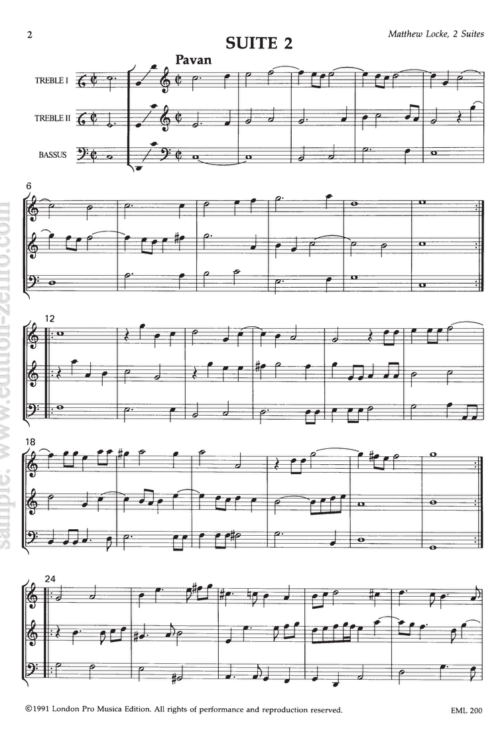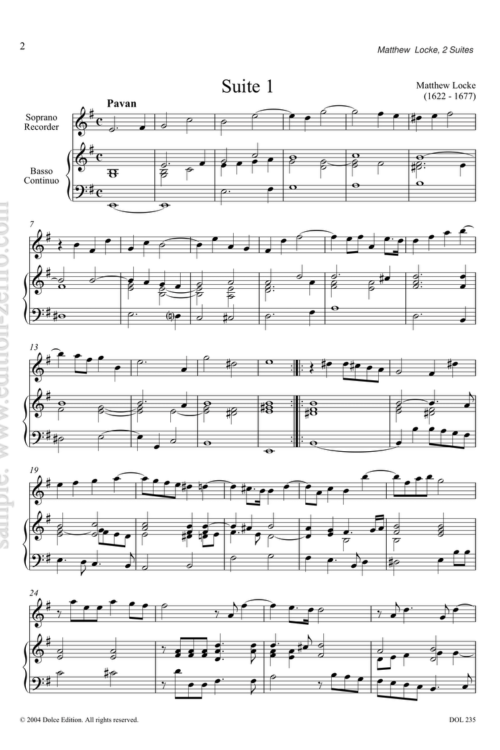Come On In
Matthew Locke (c. 1621 – 1677) was born in Exeter and was a chorister in the choir of Exeter Cathedral, under Edward Gibbons, the brother of Orlando Gibbons. At the age of eighteen Locke travelled to the Netherlands, possibly converting to Roman Catholicism at the time.
In 1673 Locke’s treatise on music theory, Melothesia, was published. The title page describes him as “Composer in Ordinary to His Majesty, and organist of her Majesty’s chapel”, those monarchs being Charles II and Catherine of Braganza. Locke also served King Charles as Composer of the Wind Music (“Music for His Majestys Sagbutts & Cornetts“), and Composer for the Violins. (His successor in the latter office was Henry Purcell, who composed an ode on the death of Locke entitled What hope for us remains now he is gone?. Locke was a family friend and may have had a musical influence on the young Henry Purcell). In 1675 Locke composed the music for the score of Thomas Shadwell’s Psyche.




